Eyup Tuncer Hand Kolonya
A tradition and habit that you will see all around once you are in Turkey, is that of Kolonya. Originating from another tradition of it’s own further east. Rosewater was a common product in many Anatolian homes. You would wash your hands with rosewater before you left the house, once you came home, and offering it was considered a sign of hospitality.
Cologne from Germany eventually found its way via trade into Ottoman lands by the 19th century. The Turks soon began to integrate cologne into their already existing tradition of rosewater. Thus the modern tradition of Kolonya was born. When you leave a restaurant or enter a taxi you might be offered some Kolonya to wipe over your hands.
Kolonya can now be purchased in bottle, sprays, and handwipes to keep your hands both fragrant and hygienic. In fact, at the time of the COVID-19 pandemic Kolonya sales started skyrocketing as many Turks went back to the traditional sanitization methods of Ottoman times.
There are so many fragrances and companies making Kolonya, however if you are looking for something iconic go with Lemon Kolonya by Eyup Tuncer.
Teas
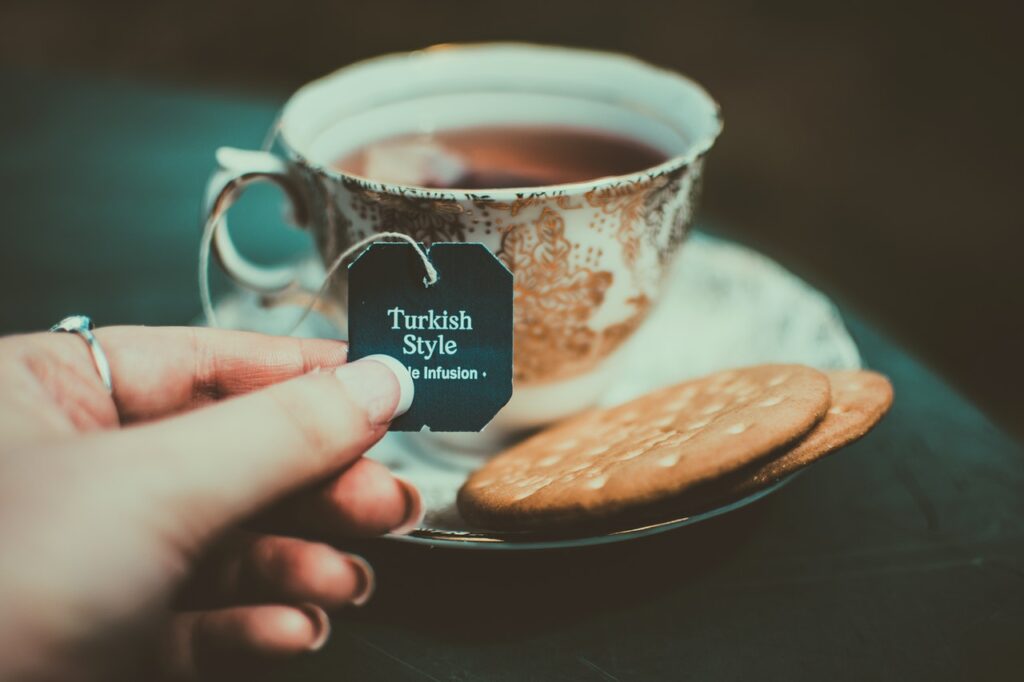
Tea is such an integral part of Turkish custom and society. You can see people enjoying their time off on the street with a cup of Turkish tea. When eating either as a guest or at a restaurant you can be assured you’ll be offered tea. Actually, some restaurants even offer ‘Ikram Cay’ a free cup of tea as a sign of thanks and hospitality for eating at that restaurant.
Turkish tea is mostly enjoyed black and you can choose how much sugar you like. They are served in iconic tea cups which will get their own mention on this list. Another variety you might find in the more touristic areas is the ‘Apple Tea’ which as far as I can understand is a sort of warm, apple flavoured cordial. Nonetheless it is amazing!
The most famous tea in Turkey is from the Black Sea region, notably Rize. You’ll be able to find both bagged and loose leaf varieties in most supermarkets, bazaars, and tourist locations.
Coffee
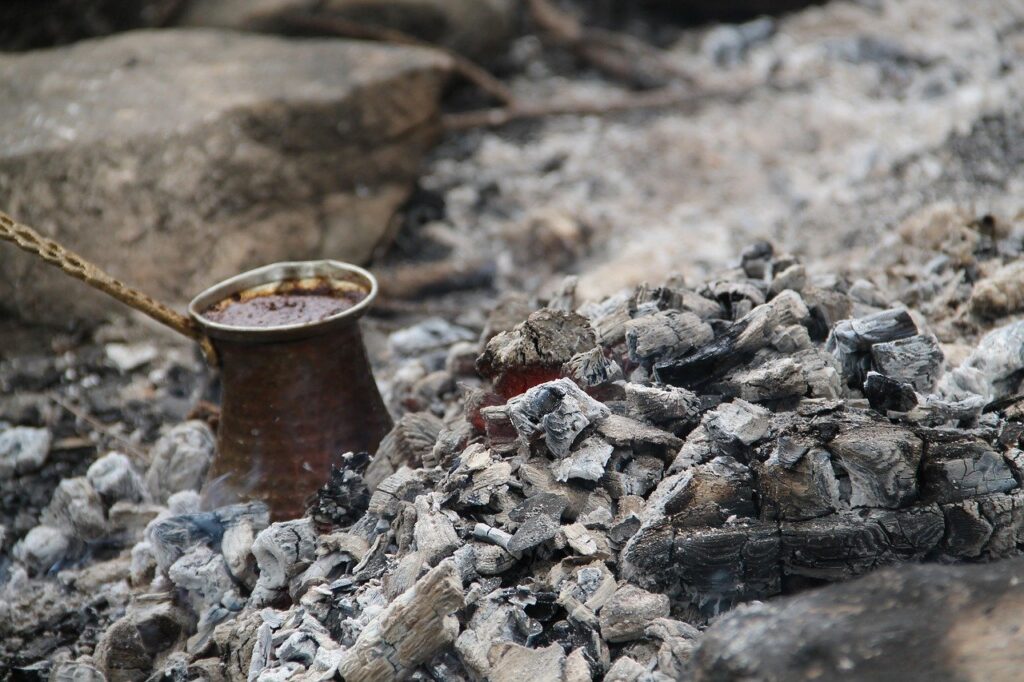
Depending on who you asked coffee culture originated in either Ethiopia or Yemen when beans were ground up, simmered with water, and served as a thick, hot, source of caffeine. From there traders eventually brought this culture to most of western Europe where it was interpreted and assimilated into the native cultures. You now have things like Artisan and Third Wave coffees, Italian coffee culture as well as Swedish Fika. If you are a looking to go back to the roots, Turkish coffee is the way to go.
To buy Turkish coffee as a gift you can find the ready to go powders from every respectable coffee shop in Istanbul. You can also buy the iconic Cezve, a small pot which is used to boil and simmer coffee over the stove. Of course, if you don’t have one any old pot will also do!
Turkish Coffee Cups
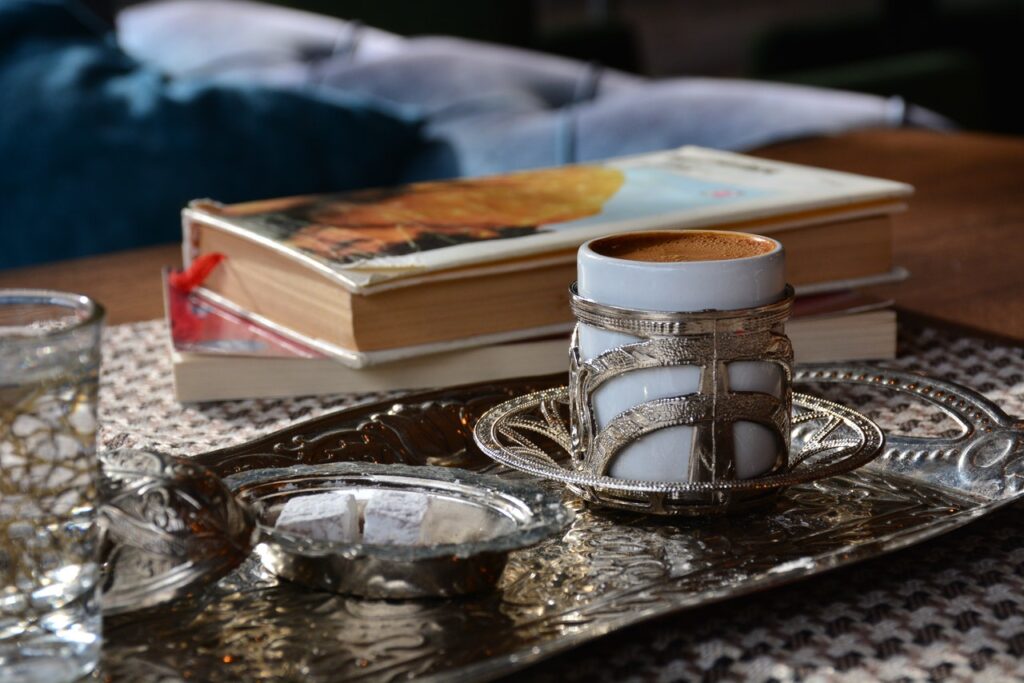
Turkish coffee is typically served in small cups, similar in size to espresso cups. The ceramics cups themselves have become their own art statements. The sky is the limit when it comes to possible designs for Turkish coffee cups. I have seen ones line with gold, Ottoman themed ones, some even in their own metal frame with a lid, and of course there must be modern takes on it as well. Many such designs are found at our number 2 destination, Pasabahce (Paşabahçe). You will almost always buy Turkish coffee cups in gift sets, sets of 2 or 6 are most popular with matching saucers.
Turkish Tea Cups
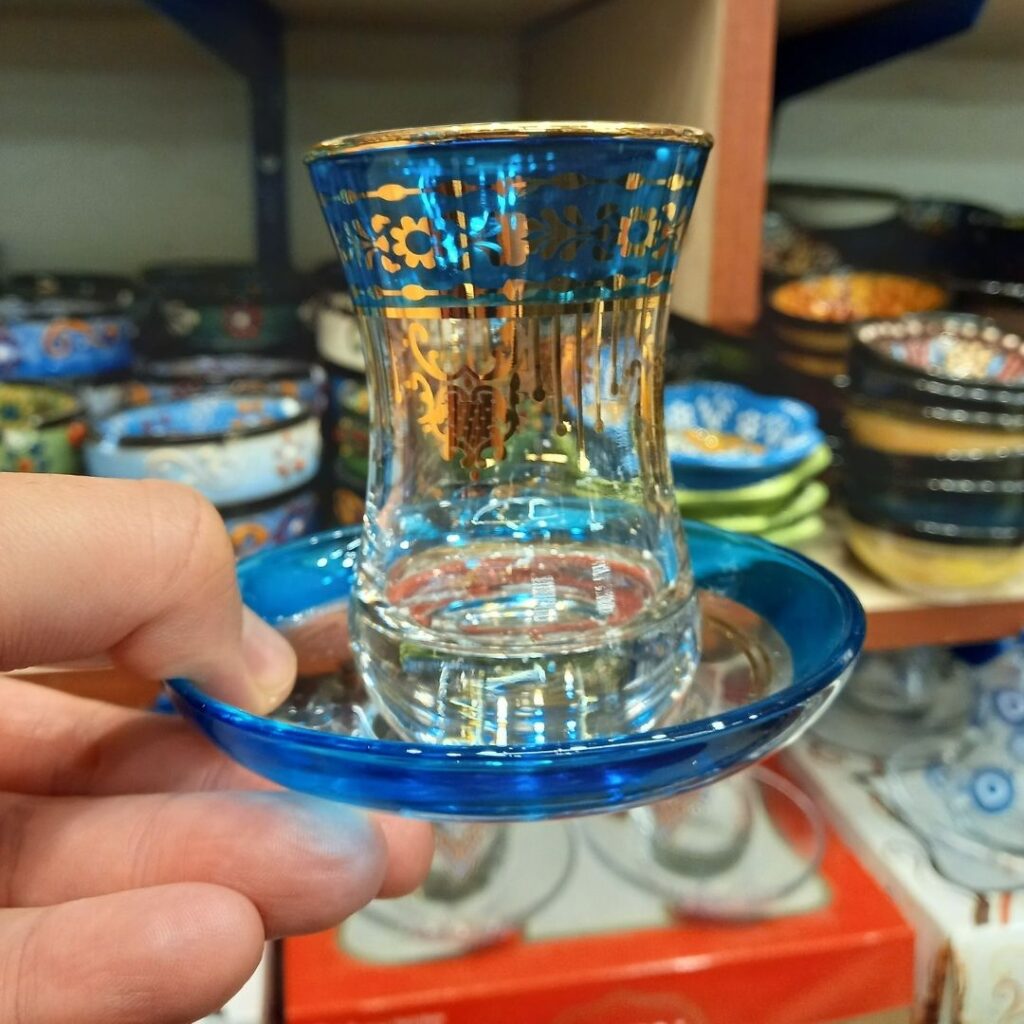
So, can’t you just have Turkish tea in a Turkish coffee cup I hear you asking? Yes, sure, but where’s the fun in that?!
Traditionally, Turkish tea is served in a glass rather than ceramic pot like coffee. The glasses are normally larger than an espresso cup but much smaller and thinner than a high tea or British style mug. They are meant to imitate the shape of another iconic Turkish symbol, the tulip. You can often find plain glasses with beautifully designed saucers, again commonly in sets of 2 or 6.
Turkish Fabrics
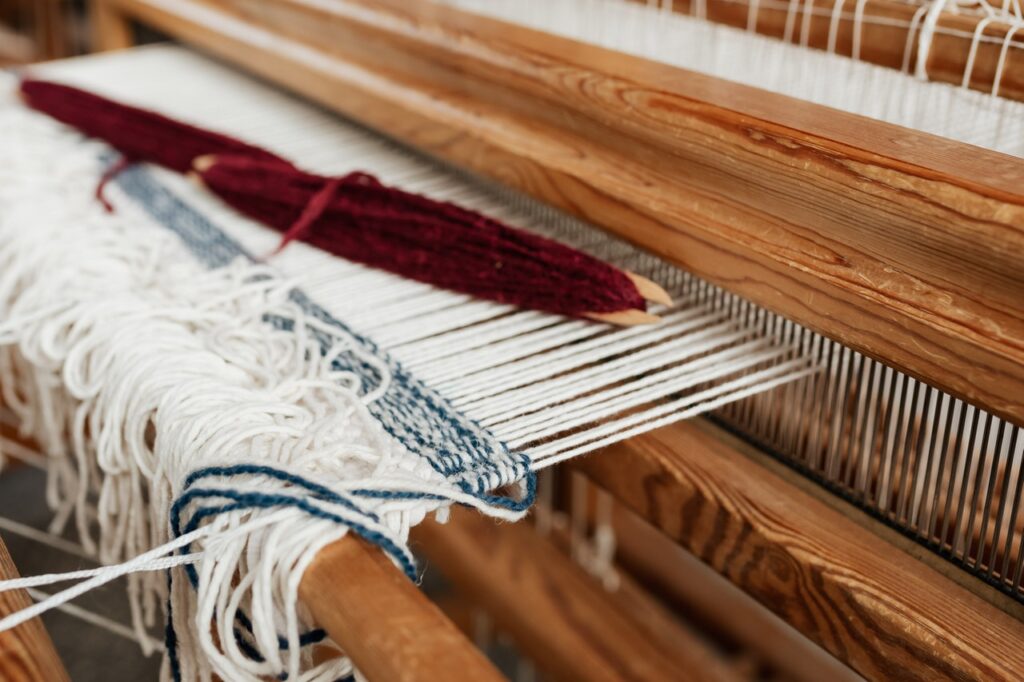
There are many different fabrics styles and methods that have become part of the Turkish cultural heritage. Sometimes these fabrics are used in scarves and cushion covers, but they can also be used in clothing as well as handbags and other accessories.
Depending on how far you travelled you may have already seen or heard of the İkat fabric style. Originally from Malaysia and Indonesia, the name ikat deriving from the local language, İkat fabrics have spread across much of South East and Central Asia. The threads for İkat are dyed before being strung together into a proper fabric. This creates a unique shimmering, slightly fuzzy quality to İkat textile products. İkat handbags, cushions, and accessories are considered high end and make for a great quality gift.
Another option for lovers of beachy dresses and summer wear is the Şile Bezi. This is a hand loomed cotton that is known for being light and breathable, with distinct embroideries and patterns. It originates from the area of Şile which lies at the outskirts of Istanbul, against the Black Sea. A highly recommended visit if you need to escape the tourist throng in Istanbul and see where the locals go for holiday.
If you’re looking for Turkish fabric gifts you may find both the İkat and Şile Bezi in and around the bazaars as well as at boutique home decor stores. Check out this article here, by the Daily Sabah, for more on the various traditional Turkish fabrics.
Coasters of All Sorts
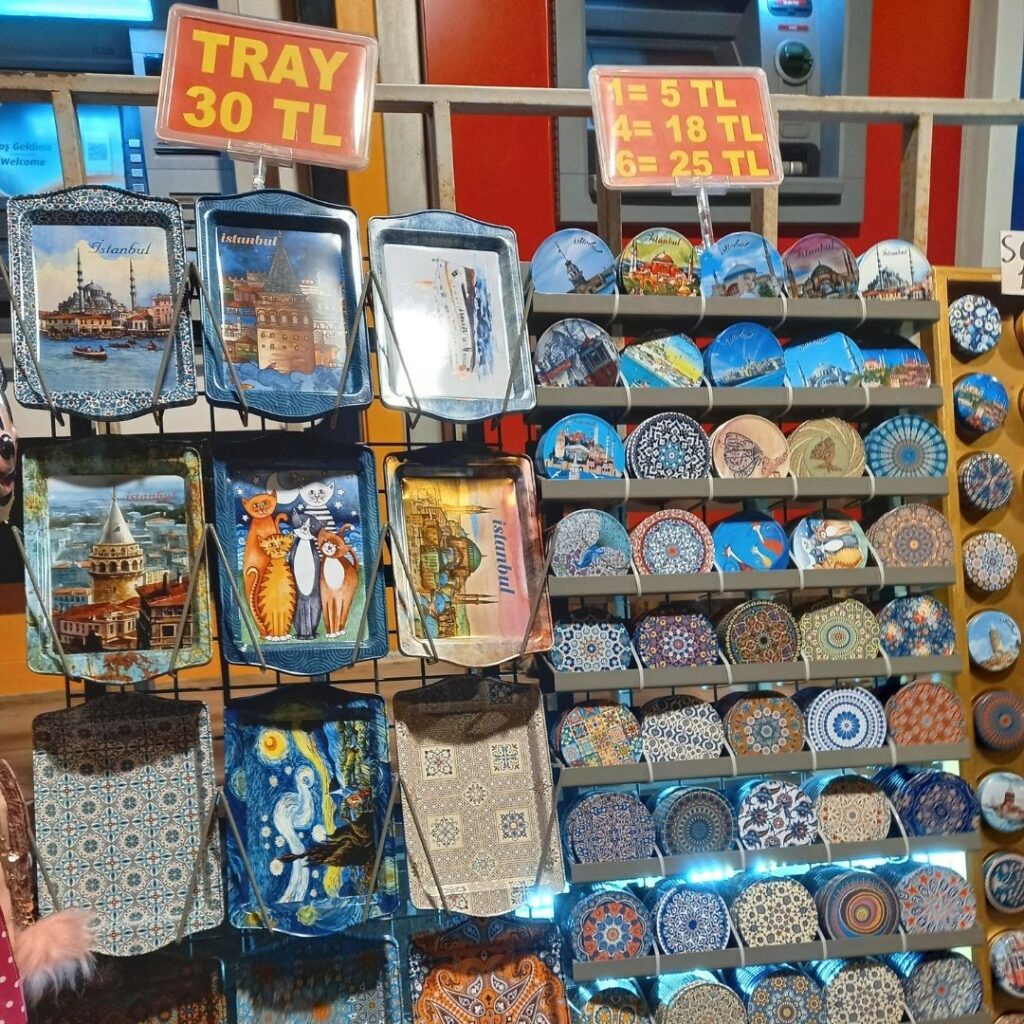
So, you’ve bought your table spread with matching cushion overs. You’ve got traditional Black Sea tea from Rize. AND you bought tulip shaped tea glasses. You’re probably thinking what’s missing from your table spread. I’ll tell you, it’s coasters!
Coasters are a great gift idea because they are lightweight and you can often buy them in sets. You will also find a variety of designs, ranging from Ottoman, New Age, and of course you can find ones with landmarks and touristic designs on them.
Just about every market stall sells these, however we have found our best bargains along the tramline in front of the Sultanahmet station.
Trays Specific for Turkish Tea
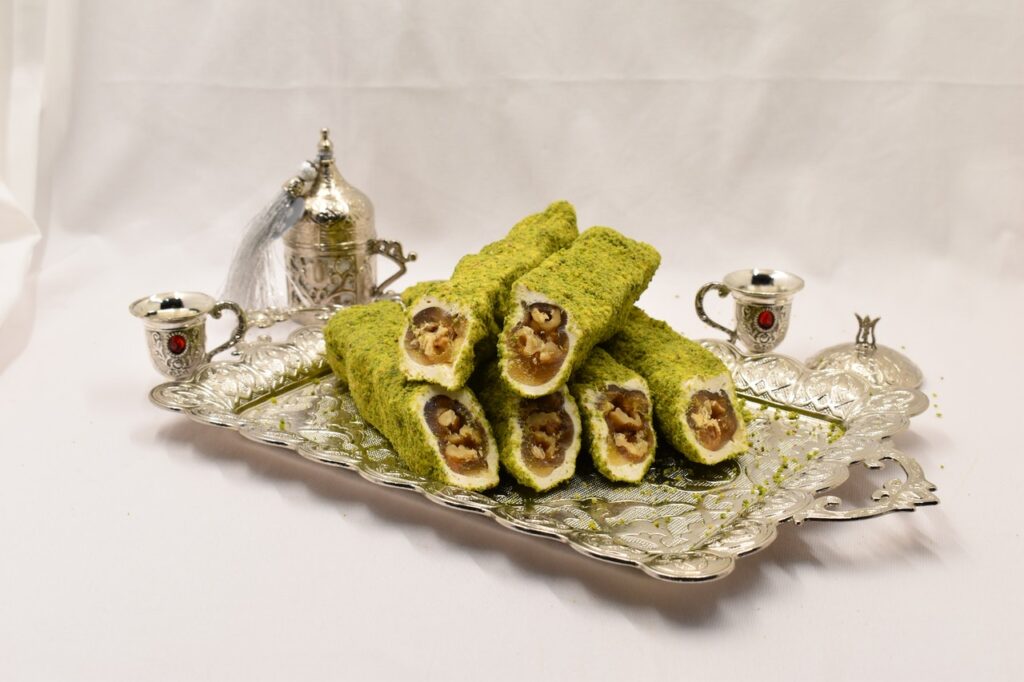
If you haven’t noticed by now, the Turkish people have really thought out how to be the best hosts and every thing you could possibly need has been turned into a work of art. You’ve already read how important things like tea and sweets are to their customs. So naturally there are heaps of options when it comes to serving trays.
Serving trays are a versatile gift that don’t have to be used for just tea. They can also be stacked and stored away nicely in your suitcase in between some clothes. You will also find both wooden, plastic, and metal trays depending on your desires. And of course, whatever design you want on it, you’ll find it!
5 COMMENTS
Comments are closed.
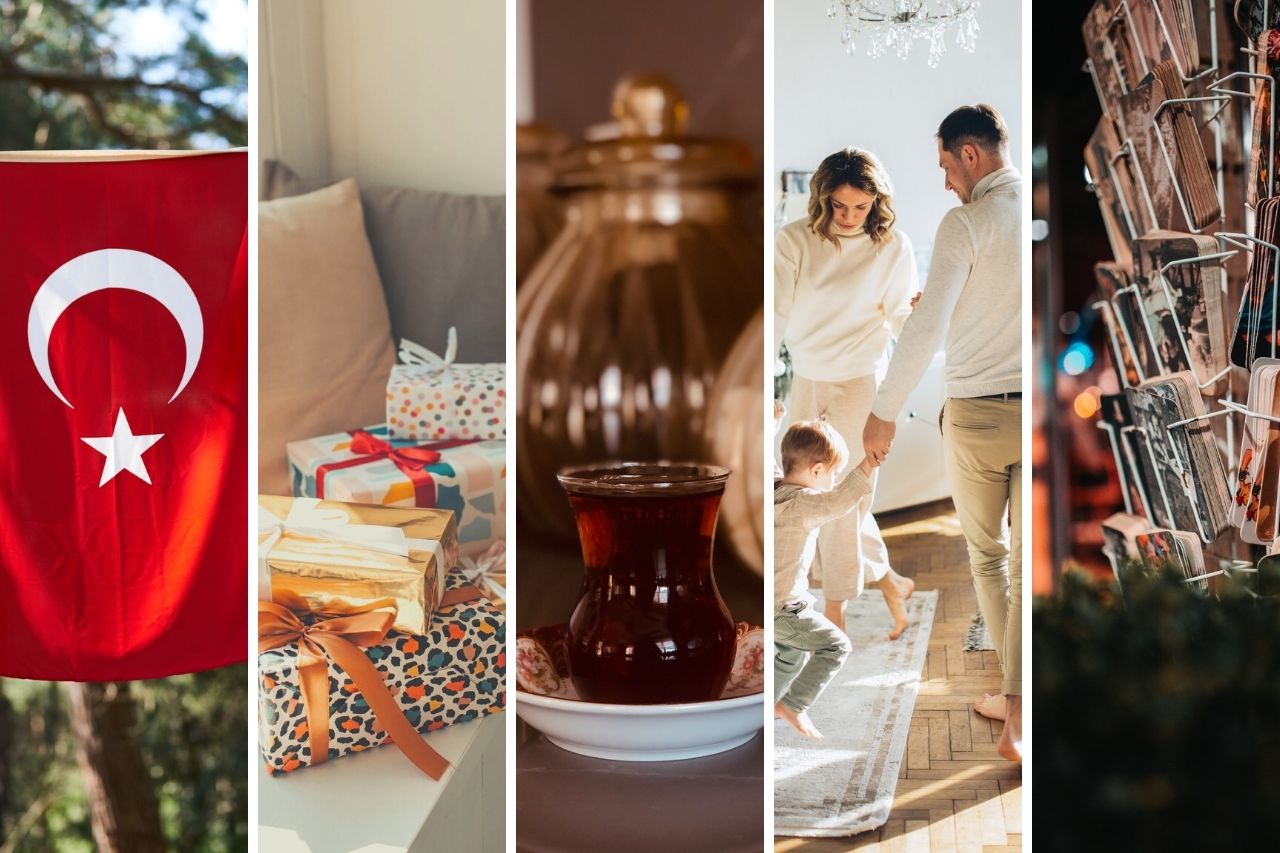



I enjoyed this post greatly. Having traveled in Turkey twice before, we are taking our kids this spring and I was curious about what would make good keepsakes. The Turkish ceramics and lights have always drawn me to them but I have never bought any but I think I need to rectify that…or a coffee set…or a table runner with matching cushions…or…
Hi there! Thank you so much for the comment and I’m glad you enjoyed reading. All the best with your travels in the spring time, what a magnificent time to go! There are many small ceramic keepsakes and souvenirs that really “feel” Turkish. Small things that can go on a shelf, work desk, or even hang from somewhere. Perhaps one tile with some Ottoman/Turkish style of calligraphy? If you have the space, the tea cups work really well. Our family just got some and it becomes a real talking piece when you bring it back. And yes, table runners with cushions covers are great if you like that sort of thing. Hope this helps and best of luck for your future travels!